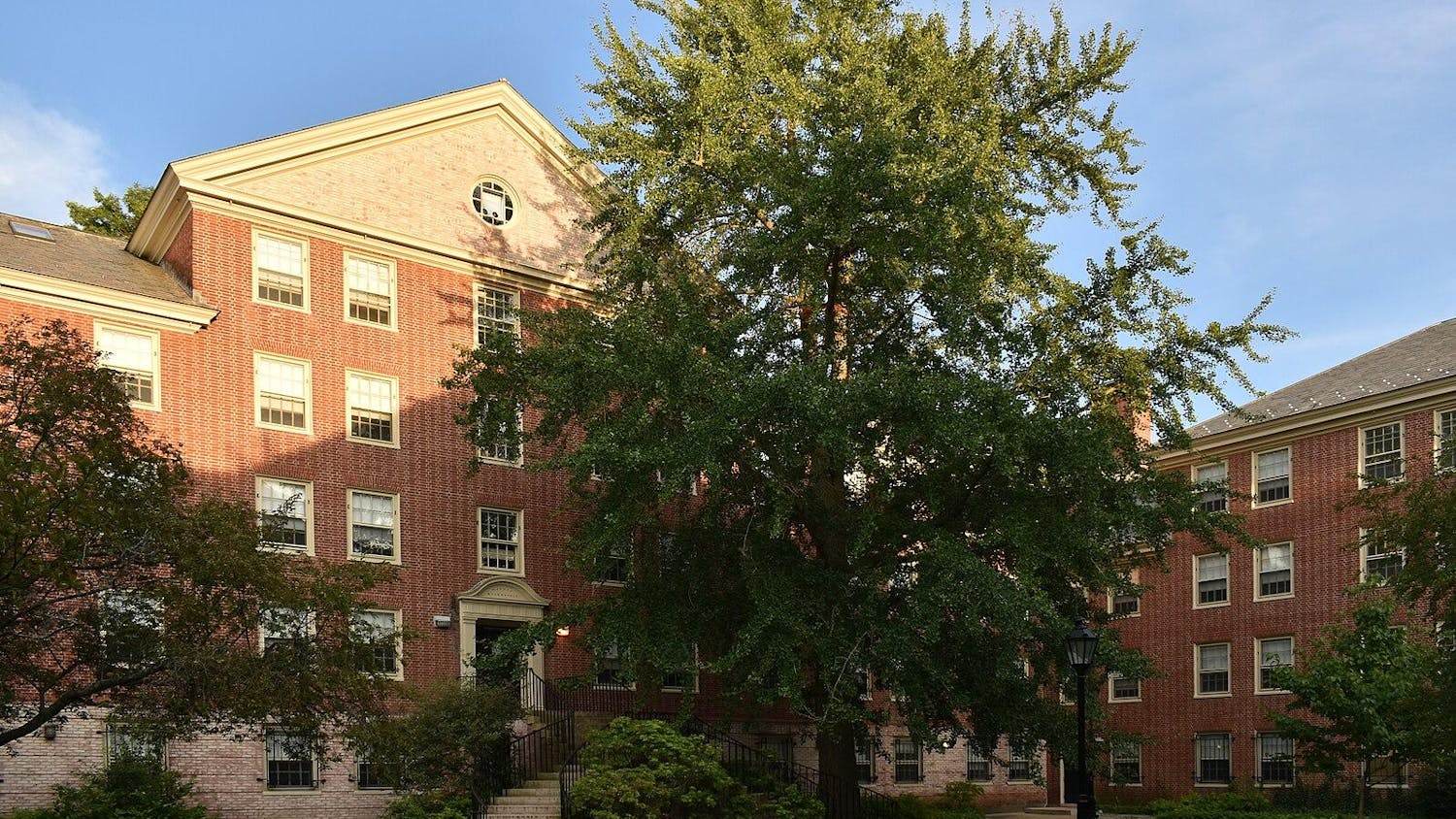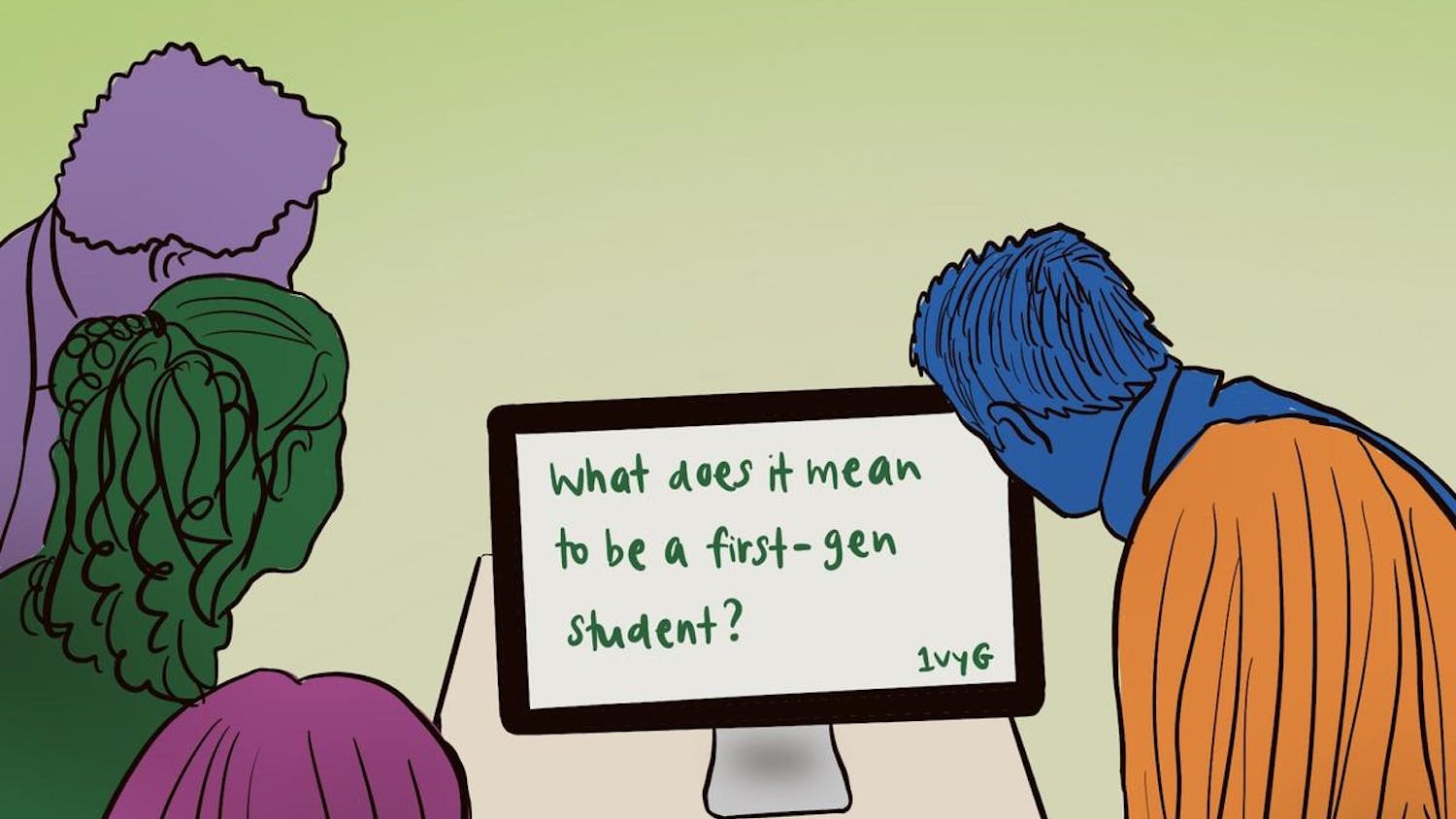President Christina Paxson spoke about an upcoming capital campaign, her longterm University goals as well as a wide range of other issues during the State of Brown address Wednesday.
About 150 students and faculty members attended the forum in Salomon 101, which was hosted by the Undergraduate Council of Students.
Paxson opened the talk by emphasizing her desire for dialogue. “I’m not going to give a speech,” she said, adding that though the lecture’s official title was the “State of Brown (address),” she thought of it as the “State of Brown conversation.”
As the strategic plan unfolds over the next decade, “I would like to see a significant and sustained increase in Brown’s stature as a leading university known for innovative research and education,” Paxson said. She added she envisions the University “making very large investments in people” over the next 10 years in the form of effective faculty recruitment, a focus on financial aid and growth of a “diverse” postdoctoral program.
Experimenting with online technology, such as Massive Open Online Courses, will not be a big priority for the University over this period, Paxson said. “It just doesn’t make sense for Brown.”
The Corporation laid out a capital campaign to finance these initiatives, which will be “very expensive — in the billons of dollars,” she said. “I’m excited about the potential to go out and pull the resources that we need to do great things.”
“It’s been a difficult year,” Paxson said, citing the controversy over both the Corporation’s decision against coal divestment and the canceled lecture by former New York City Police Commissioner Ray Kelly.
“In other ways too, I’ve really loved this year,” she added. “It’s given me an opportunity to talk to students in a way that I never have before.”
After giving her introduction, Paxson opened up the conversation for a question-and-answer session in which students could pose questions directly to Paxson and other administrators, including Margaret Klawunn, vice president for campus life and student services and acting dean of the College.
Alvina Pillai ’14 asked if there was a form that let students evaluate the performance of deans and support staff.
Such a form exists for staff members at Health Services, Klawunn said.
“I’d be happy to think about” creating a similar form applicable to staff members in offices such as Psychological Services, Paxson said.
Shefali Luthra ’14, former Herald editor-in-chief and president, asked Paxson to identify her “top finance priority” in the capital campaign and how she would advertise it “to alums who would be giving donations.” Paxson replied the capital campaign is still in its “quiet phase or nucleus phase” and “we don’t know how big this campaign is.”
“I think probably half of the campaign will be investments in people,” she said, including financial aid expansion, fellowship support for graduate students and endowed professorships. “The other half would be for programmatic needs, and then campus needs and facilities needs to support everything else we want to do,” she added.
Another issue brought up was the Corporation’s decision not to divest the University’s endowment from coal and fossil fuel companies. “Given the enormous role of the coal industry and its causing climate change, how do you think that our investments should reflect the goals that are listed in the strategic plan?” asked Tammy Jiang ’16, a member of Brown Divest Coal.
“The endowment is not meant to be used to express social or political views, to make statements or political gestures,” Paxson said in response. “Even though our investments in coal right now are miniscule,” putting restrictions on the endowment “limits our ability to access really good fund managers,” she said.
“Do you support student representatives on the Corporation?” asked Maggie Tennis ’14, a Herald opinions editor.
“There are students who are on search committees on a routine basis,” but adding student representatives to the Corporation would create issues of confidentiality and place pressure on the selected students, Paxson said, adding that young alumni trustee positions were recently added to the Corporation.
ADVERTISEMENT




